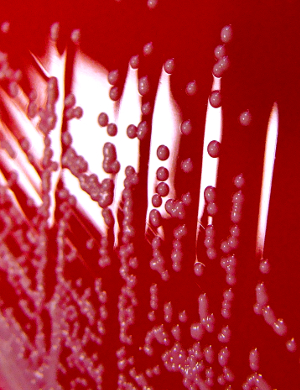New material cuts step for stem cell speed-up
 Scientists in the UK have developed a new substance to simplify the manufacture of cell therapies, boosting the pioneering world of regenerative medicine.
Scientists in the UK have developed a new substance to simplify the manufacture of cell therapies, boosting the pioneering world of regenerative medicine.
Cell therapy is the most exciting and rapidly-developing area of medicine.
Studies have shown stem cells can repair human tissue and maintain organ function in chronic disease and age-related illnesses, but a major problem exists in translating current successful research into actual products and treatments.
That problem is just how to mass-produce such a complex living material.
There are two distinct phases in the production of stem cell products; proliferation (making enough cells to form large tissue) and differentiation (turning the basic stem cells into functional cells).
The material environment required for these two phases are different and scientists have been eagerly search for a substance that could handle both.
Now a multi-disciplinary team of researchers at the University of Nottingham has created a new stem cell micro-environment which they say allows both the self-renewal of cells and then their evolution into cardiomyocyte (heart) cells.
The material consists of a hydrogel containing two polymers – an alginate-rich environment which allows proliferation of cells. There is a simple chemical switch built in to make the environment collagen-rich when the cell population is large enough.
This change triggers the next stage of cell growth, where cells develop a specific purpose.
“Our new combination of hydrogels is a first,” says Professor of Advanced Drug Delivery and Tissue Engineering, Kevin Shakesheff
“It allows dense tissue structures to be produced from human pluripotent stem cells [HPSC] in a single step process never achieved before.
“The discovery has important implications for the future of manufacturing in regenerative medicine. This field of healthcare is a major priority... and we are seeing increasing investment in future manufacturing processes to ensure we are ready to deliver real treatments to patients when HPSC products and treatments go to trial and become standard,” he said.
The study has been published in the Proceedings of the National Academy of Sciences.








 Print
Print